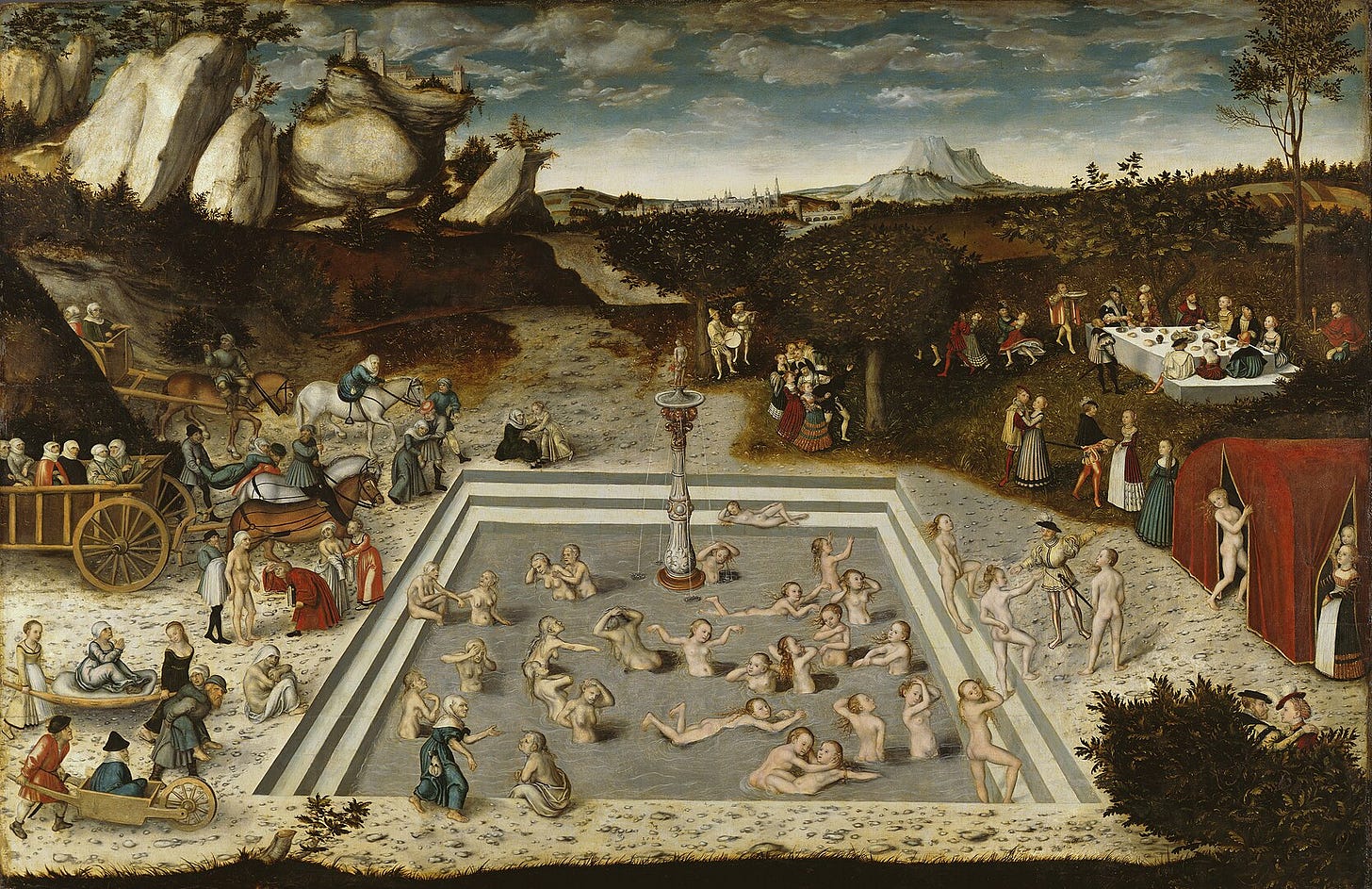Dinner at the Home of the Daoist Master Mei on Qingming Day Meng Haoran I was lounging around in a wood, Mourning the end of spring, When I opened my windows to look At the beauty of everything, And suddenly spotted a bluebird, That messenger of the divine, Who carried an invitation To the home of a Master Red Pine. Your crucible is glowing, It burns with transformative heat, As sacred flowers are growing On the immortality peach. If the alchemist’s elixir Puts the bloom of youth in our cheeks, Then certainly we’ll sit here And reverently wet our beaks. 孟浩然 清明日宴梅道士房 林卧愁春尽,开轩览物华。 忽逢青鸟使,邀入赤松家。 丹灶初开火,仙桃正发花。 童颜若可驻,何惜醉流霞!
Meng Haoran’s attitude towards the Daoists is not very clear, but there is at least a vein of humour running through this poem. I don’t think he’s mocking Mei, but he is offering a healthy skepticism towards the alchemical ambitions of the Daoist order. Fortunately, of all the world’s religions, Daoists have one of the most robust senses of humour, so I imagine that Mei took it in very good part.
The Daoists were the alchemists of ancient China. Their beliefs involved understanding the world, being at one with it, and making use of its mysterious properties - including searching for herbal or chemical mixtures which could cure disease, or abolish death altogether. The Daoists’ version of the philosopher’s stone came in liquid form, and it was called liuxia - flowing dawn clouds. This mythic elixir was drunk by the gods, and if any earthly Daoist ever managed to synthesise it, he would achieve immortality.
Mei was obviously engaged in research to this end, but he took time out to invite Meng Haoran to his rustic hovel for a few bevvies on Qingming Day. Also known as Tomb Sweeping Festival, this is a day for clearing graves, remembering the dead, and meeting up with friends. It happens around Easter time, in early April.
Meng offers conventional praise to Mei: he compares him to Master Red Pine, one of the great Daoists of legend, who was around at the time of the Yellow Emperor. (If you read much Chinese poetry, you might recognise the name, because it’s also the pen name of Bill Porter, a very fine translator of Chinese classical poems.) Meng suggests that Mei sent his invitation via the Blue Bird, presumably some early form of divine Twitter. And at Mei’s house he finds the alchemist’s crucible burning and immortality peaches growing, suggesting that Mei’s research is coming along very well…
But the last line offers the wry comment that makes this poem. When Meng and Mei sit and drink together, their cheeks do indeed gain a rosy flush… but it probably wasn’t the flush of magically restored youth.
There doesn’t seem to be a recording of this one in Tang pronunciation, so no video this time, I’m afraid.



